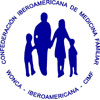Use of information and communication technology in the rural municipality: an experience
Resumo
Introduction: Primary care is the first contact with the health system and should be your center coordinator. Information and health informatics are important resources because they can be instruments integrators and supporters of the decision process. In rural city, the use of these resources can collaborate in health education and the instrumentalization of the teams, qualifying health care to the population.
Objective: To report a experience of developing a software directed to the informational needs of a Primary Health Care unit, a small municicipality with rural characteristics.
Methodology or experience description: This is an experience report of developing software by students of Biomedical Informatics, School of Medicine of Ribeirão Preto, University of São Paulo (FMRP-USP), in Cassia dos Coqueiros, state of São Paulo-Brazil, municipality with a population of 2,634 inhabitants, 32% rural and 68% urban. Medical assistance is offered in Social Community “Pedreira de Freitas” Medical Center, a unit of primary care linked to the Unified Health System (SUS), which is teaching and learning setting for students of medicine and IBM of FMRP-USP and not has a computerized information system to support the management and healthcare.
Results: Students from IBM, supervised, conducted several visits to the health unit for lifting the system requirements in 2013. The survey included interviews, observations of the work process and document analysis. This dataset was used to compose the Use Case Model, originally of reception areas, pharmacy and immunization. At the moment, the system is in the phase of prototyping. This experience has provided students apply knowledge of medical informatics in a real environment of a rural municipality, identifying its limitations and possibilities. The health unit will have an information system created from a need and able to interoperate with the systems of the SUS.
Conclusions or Hypothesis: Today, in Brazil, primary care is considered an important area for health education. This health unit is a different scenario of teaching and learning because it represents the pursuit of teaching-service integration, enabling the formation of biomedical informata aligned health care management needs of a municipality with rural characteristics.
Palavras-chave
Texto completo:
PDF (English)Apontamentos
- Não há apontamentos.
Este periódico é de responsabilidade das associações:
Apoio institucional:







